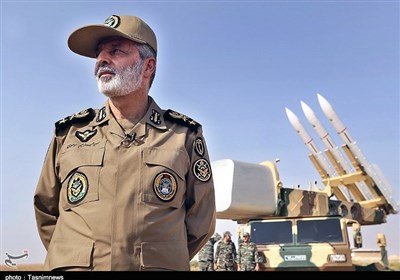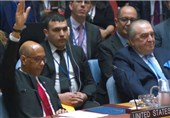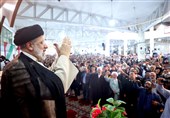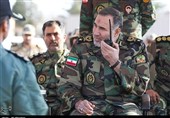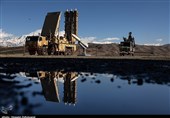China: JCPOA Important Factor in Maintaining Regional, Global Peace
TEHRAN (Tasnim) – China’s foreign ministry spokeswoman restated Beijing’s “firm support” for the 2015 nuclear deal between Tehran and world powers, describing it as “an important positive factor in maintaining regional and global peace and stability”.
“This July 14 marks the fifth anniversary of the conclusion of the Joint Comprehensive Plan of Action (JCPOA). On June 7, State Councilor and Foreign Minister Wang Yi sent a letter to the UN Secretary-General and the rotating president of the UN Security Council, elaborating on China's position and proposition on the Iranian nuclear issue. Today I would like to take this occasion to reiterate China's firm support for the JCPOA,” Hua Chunying said during her weekly presser on Tuesday concurrent with the fifth anniversary of the 2015 nuclear deal.
She added, “Five years ago, the E3/EU+3 (China, France, Germany, Russia, the United Kingdom, the United States and the European Union) and Iran reached the historic JCPOA in Vienna. This important outcome of multilateral diplomacy was then endorsed by UN Security Council Resolution 2231. The JCPOA has become a key element of the international nuclear non-proliferation regime, an important positive factor in maintaining regional and global peace and stability, an excellent example of resolving regional issues through multilateral approaches”.
“Unfortunately, the US has in recent years been upholding unilateralism, renouncing its international obligations, and withdrawing from treaties and organizations. It withdrew from the JCPOA in May 2018 and thwarted in every means other parties' implementation of the agreement. Such clear violation of the UNSCR 2231 has led to continued tension over the Iranian nuclear issue. At present, the US attempts to further undermine the JCPOA by pushing for the extension of the Security Council arms embargo against Iran and threatening to activate the snap-back mechanism”.
The spokeswoman further said, “China believes that preserving and implementing the JCPOA is the right way to resolve the Iranian nuclear issue. Iran's scaling back of compliance is the result of the maximum pressure exerted by the US. Parties to the JCPOA should strengthen dialogue and consultation within the framework of the Joint Commission, seek a solution to the compliance dispute in a step-by-step and reciprocal approach, and restore the balance of rights and obligations under the JCPOA. The parties should support strengthened dialogue and cooperation between the International Atomic Energy Agency (IAEA) and Iran in order to properly resolve the safeguards issue as soon as possible. At the same time, the international community should jointly oppose the US pushing the Security Council to extend or reinstate sanctions against Iran and urge the US to return to the right track of compliance with the JCPOA and UNSCR”.
Josep Borrell, the EU’s foreign policy chief, issued a statement on the occasion of the fifth anniversary, pledging “to do everything possible” to salvage the accord.
The deal is “a historic multilateral achievement for global nuclear non-proliferation,” Borrell said.
“The JCPOA remains the only tool to provide the international community with the necessary assurances regarding Iran’s nuclear program… The full implementation of the JCPOA by all sides remains crucial,” he said.
The deal was reached between Iran and a group of countries then known as the Group 5+1 — which included the United States, Britain, France, Russia, China, and Germany — on July 14, 2015. However, in May 2018, US President Donald Trump unilaterally pulled his country out of the JCPOA and re-imposed the sanctions that had been lifted under the deal.


